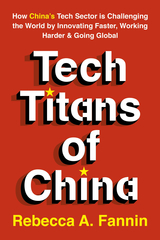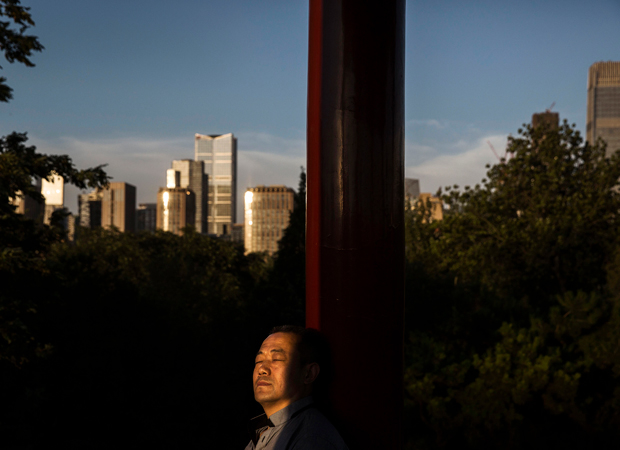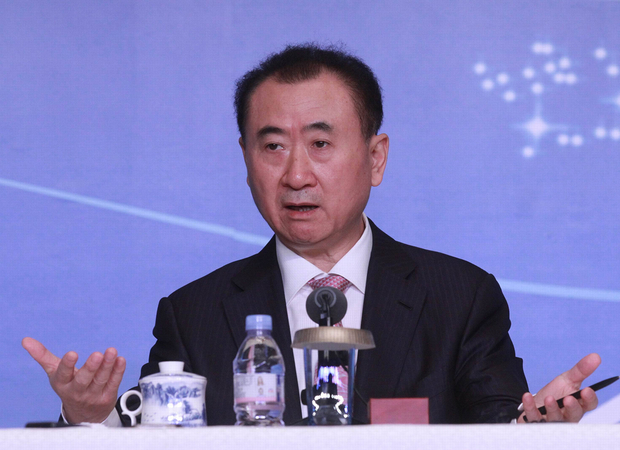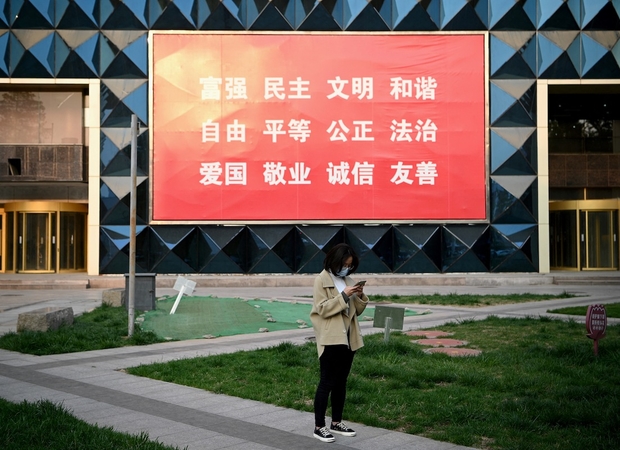
Why China Is Going After Its Tech Giants
Just days after its lucrative listing on the New York Stock Exchange, China ride-hailing giant Didi Global was hit with another round of sanctions by the Cyberspace Administration of China (CAC). On July 4, the country’s Internet regulator...

Shielding Corporate Interests, Europe Leaves NGOs Working in China by the Wayside
In late December 2020, at the end of a very turbulent year in Europe-China relations, and after more than seven years of often strenuous negotiations, the European Union (EU) and China agreed on the terms of a “Comprehensive Agreement on...

Vernacular Industrialism in China
In early 20th-century China, Chen Diexian was a maverick entrepreneur—at once a prolific man of letters, captain of industry, magazine editor, and cosmetics magnate. He tinkered with chemistry in his private studio, used local cuttlefish to source magnesium carbonate, and published manufacturing tips in how-to columns. In a rapidly changing society, Chen copied foreign technologies and translated manufacturing processes from abroad to produce adaptations of global commodities that bested foreign brands. Engaging in the worlds of journalism, industry, and commerce, he drew on literati practices associated with late-imperial elites but deployed them in novel ways within a culture of educated tinkering that generated industrial innovation.

‘This Is Not Forensic Genetics Anymore. This Is Surveillance.’
Yves Moreau, a professor specializing in human clinical genomics, had been emailing with Promega since 2016, warning its communications department first about how Promega’s products might be used in a proposed DNA databasing project in Kuwait,...

American Company Sold DNA Analysis Equipment to Security Officials in Xinjiang, Documents Show
In 2015, the Xinjiang Production and Construction Corps Public Security Bureau announced it planned to purchase equipment from the U.S.-based biotechnology company Promega for the purpose of analyzing DNA and adding it to a national database,...

China’s Urban Champions
The rise of major metropolises across China since the 1990s has been a double-edged sword: Although big cities function as economic powerhouses, concentrated urban growth can worsen regional inequalities, governance challenges, and social tensions. Wary of these dangers, China’s national leaders have tried to forestall top-heavy urbanization. However, urban and regional development policies at the sub-national level have not always followed suit. Why do policymakers in many cases favor big cities in a way that reinforces spatial inequalities rather than reducing them?

What Just Happened with the NBA in China?
Houston Rockets General Manager Daryl Morey tweeted—and then quickly deleted—a post supporting the protests in Hong Kong. The tweet generated an immediate outcry. The Chinese Basketball Association announced it was suspending cooperation with the...

Which European Companies Are Working in Xinjiang?
Foreign companies continue to conduct business in Xinjiang despite widespread evidence of human rights abuse. This list identifies 68 European companies with ties to Xinjiang ranging from building infrastructure and investing in joint ventures to...

How Chinese Traders Both Help and Hurt Local Merchants in Ghana
It is well documented that a lot of people in Ghana and elsewhere in Africa resent the growing Chinese migrant presence, in terms of both the people who come into their countries and the Chinese way of doing business that is often culturally out...
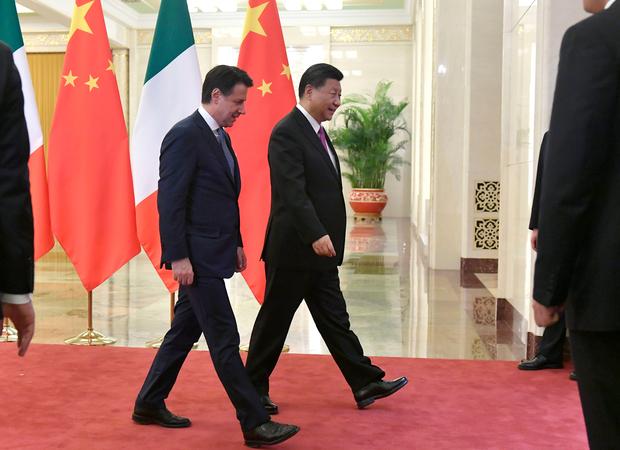
Is the Belt and Road Initiative a Bold Economic Agenda or a Political Ploy?
In an ongoing series that explores different interpretations of what exactly is the Belt and Road Initiative (BRI), Eric and Cobus are joined by Zhu Zheng, an international affairs columnist for Caixin and a research fellow at the China-Eastern...
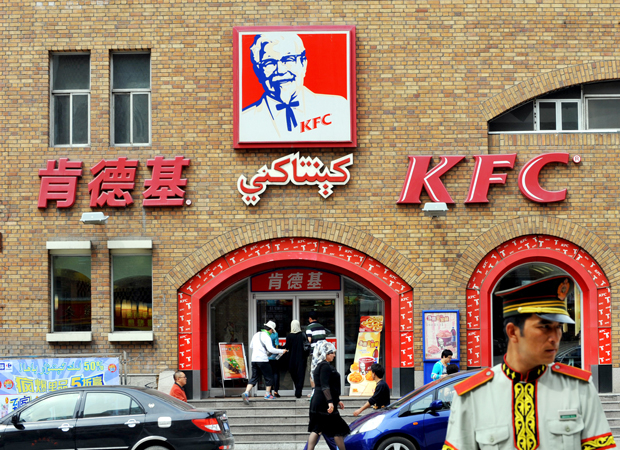
Here Are the Fortune 500 Companies Doing Business in Xinjiang
News reports from the western Chinese region of Xinjiang have described alarming, widespread, and worsening violations of the human rights of its predominantly Muslim, ethnically Turkic inhabitants, primarily the region’s approximately 11 million...

Do American Companies Need to Take a Stance on Taiwan?
China’s airline regulator recently sent a letter to 36 international air carriers requiring them to remove from their websites references implying that Taiwan, Hong Kong, and Macau are not part of China. In a surprisingly direct May 5 statement,...
U.S. Considers Tightening Grip on China Ties to Corporate America
Any broad effort to sever relationships between Chinese and American tech companies - even temporarily - could have dramatic effects across the industry.
China Now Has the Most Valuable AI Startup in the World
Facial recognition company in China becomes richest-valued private AI startup.
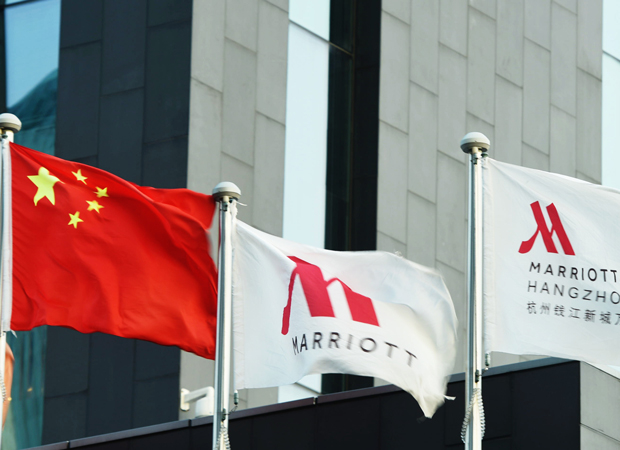
The Brands That Kowtow to China
from New York Review of BooksThere’s been no joking as the apologies to China have come thick and fast in recent weeks, issued not by teenage singers but by some of the largest and richest multinational corporations in the world—the German luxury car manufacturer Daimler,...
Chinese Capital Controls Hit Silicon Valley Tech Investors
Chinese technology investors in Silicon Valley are being thwarted by the country’s capital controls, in a sign of the unintended consequences of Beijing’s move last year to curb cash outflows.
Will Tech Firms Challenge China’s ‘Open’ Internet?
China has been smart and ruthless in its control of the internet within its borders. It blocks some foreign sites altogether and it censors - heavily - what Chinese are allowed to see.
China's Soccer Push Puts a Storied Team under Murky Ownership
When the Chinese businessman Li Yonghong bought A.C. Milan, the world-famous Italian soccer club, virtually nobody in Italy had heard of him.
Chinese Investors Are Stealthily Pouring Money into India
If you go by official Indian government figures, Chinese direct investments into the country this century hit a paltry $1.6 billion in March 2017.
Accelerating Fintech in China
China’s expeditious adoption of fintech is generating profits not only for startups, but also the companies investing in them. Sitting in the headquarters of FinPlus, a fintech venture capital firm and accelerator, its CEO, Mosso Lau, said, “...
China Leads the March of Women Learning Business
In her early 20s Cindy Mi preferred long pencil skirts and severe blazers. She was managing her family education business and she projected authority by dressing conservatively.
Blocked in China, Facebook Is Said to Seek a Shanghai Office
The social media giant in recent months has quietly scouted for office space in Shanghai, according to two people with knowledge of its efforts there. Those offices would house employees working on Facebook’s effort to make hardware but could...
China’s Former Richest Man Now Banned from Hong Kong’s Business World
Chinese entrepreneur Li Hejun, who briefly held the title of China’s richest man, was just banned from Hong Kong’s business world.
A Hong Kong court ruled to disqualify Li from being a director or being involved with the management of any...
China's HNA Group Sues Exiled Chinese Businessman
One of China’s most acquisitive companies is suing an exiled Chinese businessman for allegedly spreading what it says are falsehoods that have hurt the conglomerate’s reputation and financial interests.
China Realizes It Needs Foreign Companies
China is increasingly desperate for foreign investment. Yet foreign companies are less and less interested in what it has to offer. How this problem gets resolved may be one of the most important questions facing China's economy.
China Is Investing $57 Billion into Pakistan
Chinese entrepreneurs are looking to explore opportunities in Pakistan, where Beijing has pledged to spend $57 billion on infrastructure projects as part of its “Belt and Road” initiative.
Germany Is Trying to Stop China from Gobbling up Its Companies — but There May Be a Downside
Think of Germany and it isn’t long before visions of bustling business districts and thriving manufacturing plants spring to mind. It isn’t surprising: it’s these industries that have elevated the country to rank among the world’s leading...
New Balance Wins $1.5 Million in Landmark China Trademark Case
A Chinese court has ruled that three domestic shoemakers must pay New Balance $1.5 million in damages and legal costs for infringing the American sportswear...
A Crackdown on Unfettered Internet Access Is Jeopardizing China’s Pro-Business Credentials
Another big political meeting, another crackdown on Virtual Private Networks (VPNs)—the location-shifting software many in China use to access websites banned by its government, such as Facebook, YouTube and Google.
China’s ‘Belt and Road’ Opens up New Business in Africa—for Both the U.S. And China
There has been no shortage of headlines proclaiming China’s growing clout in a “new world order” in recent months. This speculation resurfaced after the July G-20 summit, at which the United States reconfirmed its withdrawal from the Paris...
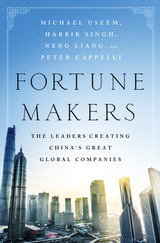
Fortune Makers
Fortune Makers analyzes and brings to light the distinctive practices of business leaders who are the future of the Chinese economy. These leaders oversee not the old state-owned enterprises, but private companies that have had to invent their way forward out of the wreckage of an economy in tatters following the Cultural Revolution.
World Asia China Cranks Up Heat on Exiled Tycoon Guo Wengui
Beijing airs allegations involving whistleblowing businessman living in New York as subordinates are tried for fraud in unusually open proceedings.
China’s Social Credit System: A Big-Data Enabled Approach to Market Regulation with Broad Implications for Doing Business in China
Under the catchphrase “Social Credit System,” China is currently implementing a new and highly innovative approach to monitoring, rating, and regulating the behavior of market participants. The Social Credit System will have significant impact on...
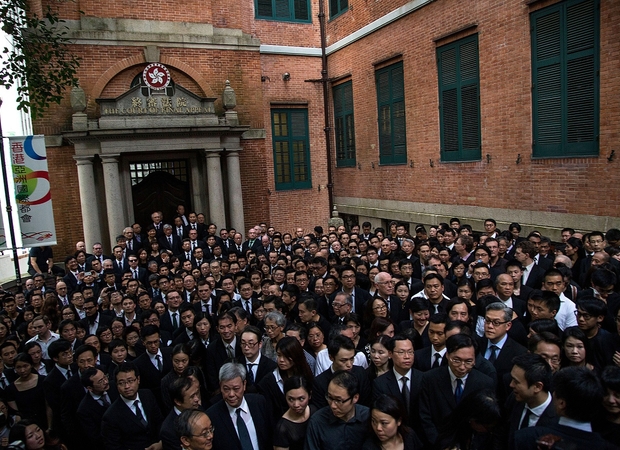
Beijing Is Weakening Hong Kong’s Rule of Law. How Far Will It Go?
“The American Chamber of Commerce has urged Hong Kong’s next government to reach out to international businesses still ‘unclear’ about what opportunities the city can offer under the one country, two systems policy.” —
...
Trump Trademarks Approved by China
China has given U.S. President Donald Trump the chance to expand his brand, after approving dozens of applications to register the Trump trademark.
China’s Plan to Build Its Own High-Tech Industries Worries Western Businesses
China has charted out a $300 billion plan to become nearly self-sufficient by 2025 in a range of important industries, from planes to computer chips to electric cars, as it looks to kick-start its next stage of economic development.
Inflation in China Is Heating Up Fast
Chinese inflationary pressures went up a cog in January, led by another enormous surge in producer price inflation (PPI).
Why Foreign Companies Are Shutting Shop in China
Sony Electronics, Marks & Spencer, Metro, Home Depot, Best Buy, Revlon, L’Oreal, Microsoft, and Sharp—some of the big names to have closed Chinese operations
Billionaire Is Reported Seized from Hong Kong Hotel and Taken into China
A Chinese-born billionaire who has forged financial ties with some of the country’s most powerful families was taken by the Chinese police from his apartment at the Four Seasons Hotel in Hong Kong late last week and spirited across the border
Bike-Sharing Revolution Aims to Put China Back on Two Wheels
From Shanghai to Sichuan, schemes are being rolled out to slash congestion, cut air pollution – and spin a profit
Mooted $75 Million Oscar Trade Sets Up Record China Soccer Spend
Chinese teams set to continue soccer spending spree in window; Spending comes amid warning from Communist Party newspaper
WWE’s China Hopes Rest on Bin Wang’s Big Shoulders
Wang will be joined by seven other Chinese athletes hand-picked by WWE Inc, in the hope that one of them will become the first Chinese WWE "superstar"
China Takes Aim at South Korea’s Lotte After Missile Move
Series of probes follows Lotte’s surrender of golf course to host US-made Thaad missile shield
China Exports Snap Seven-Month Losing Streak as Imports Surge
China’s exports gained as a cheaper yuan aided foreign purchasing; Imports jumped the most in more than two years on strong demand for raw materials
How a Midwest Governor Rose to Become America’s Top Official in China
Trump administration hopes Terry Branstad’s long-standing friendship with Xi Jinping will smooth often-strained ties between the two nations
Animosity in a Burmese Hub Deepens as Chinese Get Richer
Locals view Chinese as taking advantage of Mandalay’s location and resources. Chinese view locals as beneath them, slow at business and making money.
What Does a Fried Chicken Restaurant Have to do With Prostitution? China Wants to Know
One business in China is learning that a play on words can get it in trouble with the government
$100 Billion Chinese-Made City Near Singapore ’Scares the Hell Out of Everybody’
Planeloads of buyers fly in as condos rise from the sea
Rwanda is a Landlocked Country with Few Natural Resources. So Why is China Investing So Heavily in it?
Rwanda doesn't fit the usual narrative of China's interest in Africa-- namely that China is only interested in the continent's resources
Will Trump’s Love of Deals Work With China?
A president known for deal-making could change the landscape in East Asia
A Chinese Aid Project for Rwandan Farmers is More of a Gateway for Chinese Businesses
The Chinese approach to development cooperation does not separate aid, diplomacy, and commerce
As the Election Haze Clears, Trump’s China Conundrum Will Become Clear
President Trump would be well advised to steer away from the rhetoric of Candidate Trump in dealing with the world’s second biggest economy







